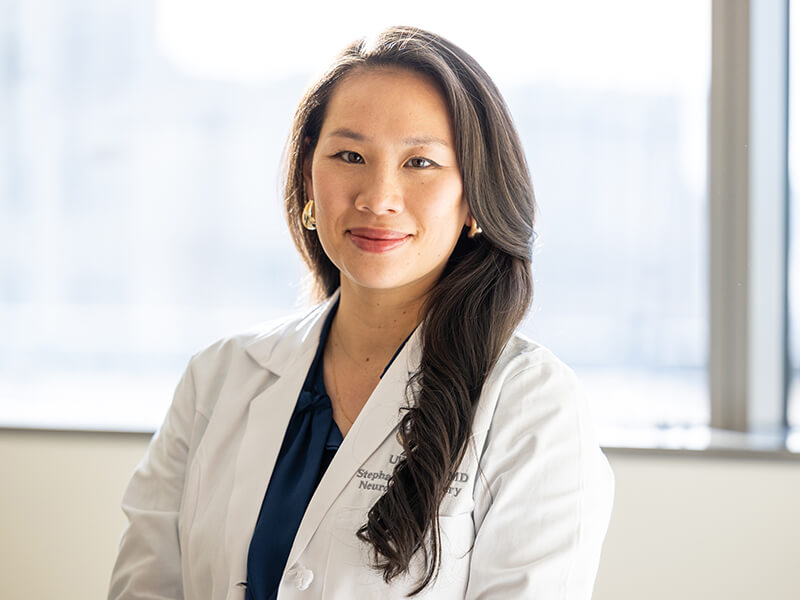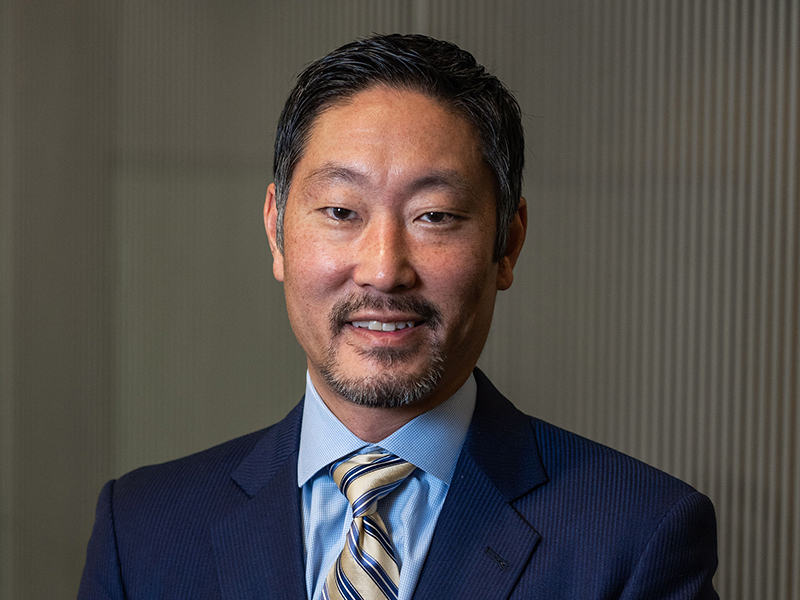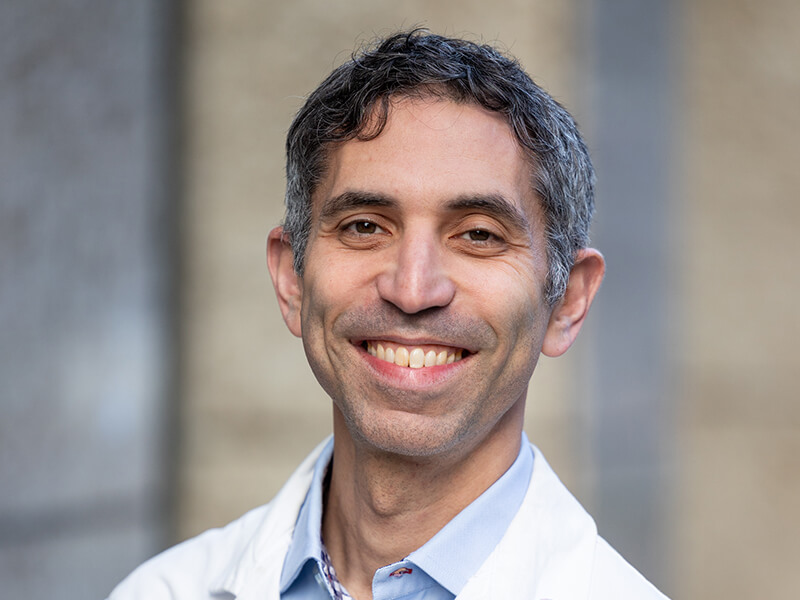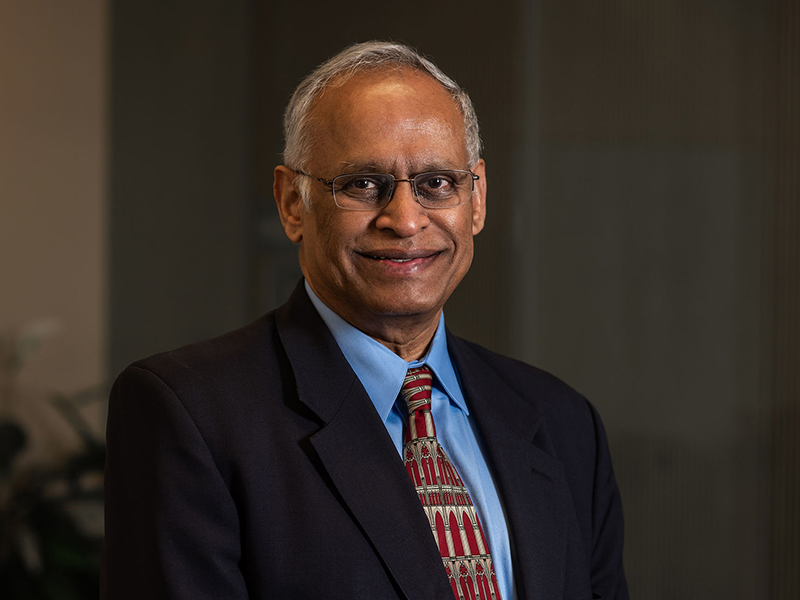Cavernoma
We have the innovative, personalized care approach you've been looking for.

Comprehensive and compassionate cavernoma treatment at UW Medicine
UW Medicine stands at the forefront of cavernoma treatment, offering patients advanced care and hope for the future. Our multidisciplinary team of experts specializes in diagnosing and treating cavernoma, leveraging state-of-the-art technology and the latest medical research. We understand the complexity of cavernoma and provide tailored treatment plans to each patient, focusing on procedures that ensure the best outcomes with the least disruption to our patients’ lives. From initial diagnosis through treatment and follow-up, our patients receive continuous, compassionate support. At UW Medicine, we don’t just treat the condition; we care for the whole person, offering support and guidance every step of the way.
Lindsay’s brain cavernoma treatment and recovery
Lindsay Ahmann, a promising Alpine skiing athlete, was on track to make the U.S. Ski Team when she started experiencing troubling symptoms: nerve pain in her shoulder and difficulty walking. Eventually, Lindsay was diagnosed with a cavernous malformation in her brain.
What is a cavernoma?
Cavernomas — also called cavernous malformations, cavernous hemangiomas and cerebral cavernous malformations (CCMs) — are abnormal clusters of closely packed capillaries (thin-walled blood vessels). These abnormal capillaries tend to clump together in a ball, making it hard for blood to flow through them. In fact, blood moves so slowly through a cavernoma, it often pools inside. To make room for this stagnant blood, your capillary walls may balloon out in many places. Together, these pockets or "caverns" of blood look like a raspberry.
Cavernomas range in size from tiny (less than 1/4 inch) to quite large (up to four inches). They can form anywhere in the body. But they're most likely to occur in the brain. Because the capillaries that make up a cavernoma are so weak, they're prone to leaking or rupturing. If this happens, you could develop a brain hemorrhage (a brain bleed or bleeding in the brain).
What does treatment look like?
If you have just been diagnosed with a cavernoma, you may feel many conflicting emotions. You might be overwhelmed, scared, nervous, confused and even angry — all of which are reasonable and expected. After this first rush of emotion, you may have some questions. How long have I had this? Can I be cured? What does this mean for my future? Where do I go to find care?
Because all cavernomas are different, we'll partner with you to build a customized treatment plan that may include medicine, surgery or monitoring. We'll base this plan on your health history and other factors, such as the cavernoma's size and location in your brain.
When you are ready, the world-class team at UW Medicine is here for you.
When does a cavernoma require emergency treatment?
Sometimes, the first sign of a cavernoma is a brain bleed that occurs when one of your capillaries ruptures. These symptoms can come on quickly and unexpectedly. They may include:
- Severe headache, which many people describe as the worst headache of their life
- Changes in vision, including vision loss or blurred vision
- Facial weakness or paralysis
- Numbness or weakness in an arm or leg, especially on one side of the body
- Problems speaking or understanding speech
- Nausea or vomiting
- Confusion
- Loss of consciousness
If you or a loved one has any of these symptoms, call 911 right away. A brain bleed can cause permanent damage. Doctors must treat you right away to prevent death or disability.
Harborview Medical Center Named Cerebral Cavernous Malformations Clinical Center
UW Medicine’s Harborview Medical Center has been designated as the first and only Clinical Center in the Pacific Northwest by the Alliance to Cure Cavernous Malformations. This recognition highlights Harborview’s multidisciplinary approach to treating patients with cerebral cavernous malformations (CCMs). The Alliance, a patient- and family-advocacy organization dedicated to raising awareness of and supporting research for a cavernous malformation cure, has named only seven Clinical Centers nationwide.
Meet with our team of experts
Getting care for a cavernoma at UW Medicine
If you have a cavernoma, you'll need a specialist with experience managing this condition.
Our neurosurgeons are skilled at distinguishing cavernomas from other conditions. Because we offer genetic testing, we can also see if your cavernoma is caused by an abnormal gene. This information can help us confirm whether other people in your family — such as your children or siblings — have cavernomas.
We offer both noninvasive and surgical treatment options for cavernomas. These include Gamma Knife radiosurgery (a type of radiation treatment) and surgery to remove the cavernoma from your brain.
Request an appointment
Our clinic location
Harborview Medical Center
Neurological Surgery Clinic
908 Jefferson St, Ninth & Jefferson Building, 5th Floor, Seattle, WA 98014



